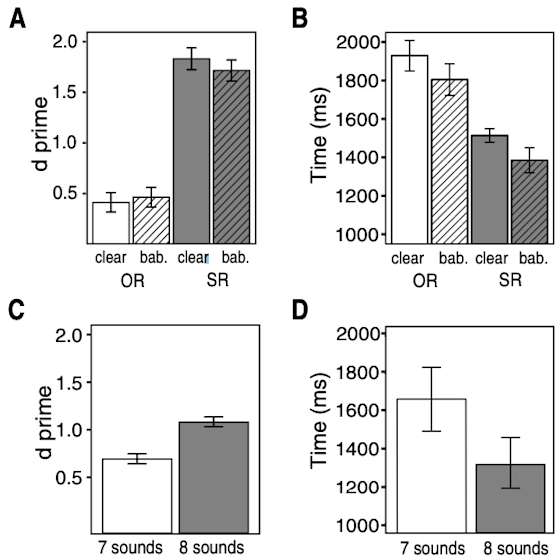Overview
Although the link between musical rhythm and speech has been well established, it is less obvious whether a similar association exists between music and language. To determine the degree of neural overlap between music and language, a recent meta-analysis on existing neuroimaging data was performed – highlighting the involvement of the frontotemporal sensorimotor network. More recently, a direct link between rhythm and grammar processing has been observed within the same individuals: For example, it was found that typically developing children (N=134 in total) with good rhythm skills understood grammatically complex sentences better than children with poor rhythm skills, even after controlling for working memory and other demographic variables.
Figure 3 displays the results of the second experiment in this study which demonstrate that the performance on the test of working memory (A) which shows a main effect of syntax, specifically with higher accuracy for subject-relative than for object-relative sentences. There was additionally a main effect of syntax on response time (B) with faster response for subject-relative than for object-relative sentences. (C) Displays that performance on the rhythm test was significantly better for 8 sounds than 7. Finally, (D) shows that response times were faster for the 8 sound rhythms than the 7.



